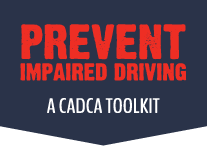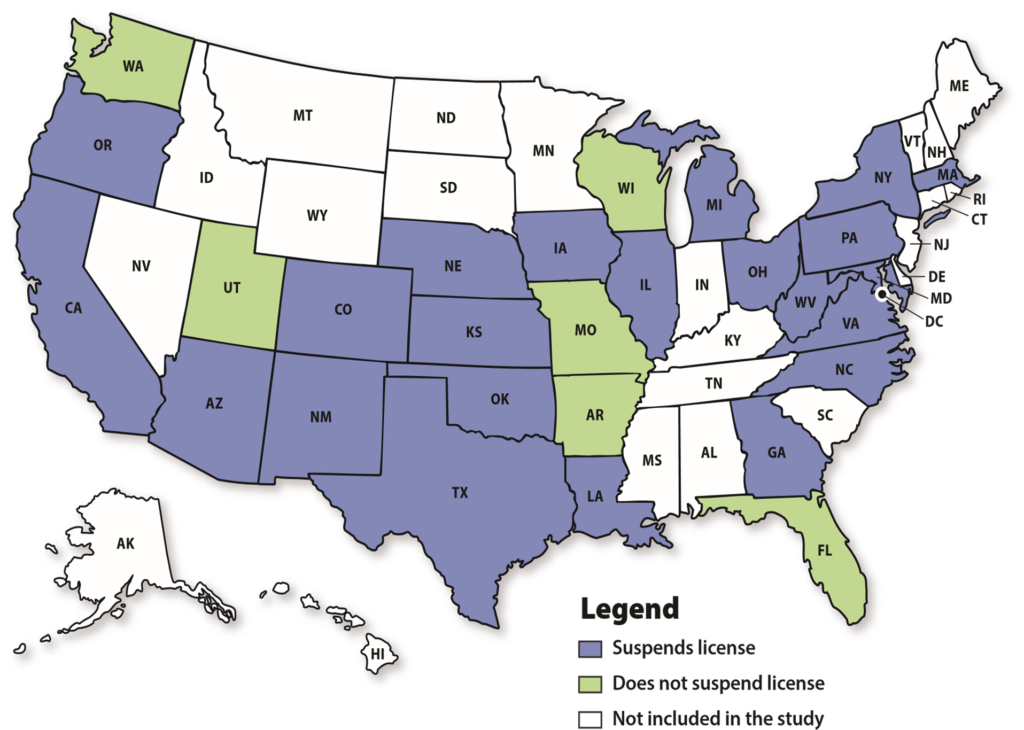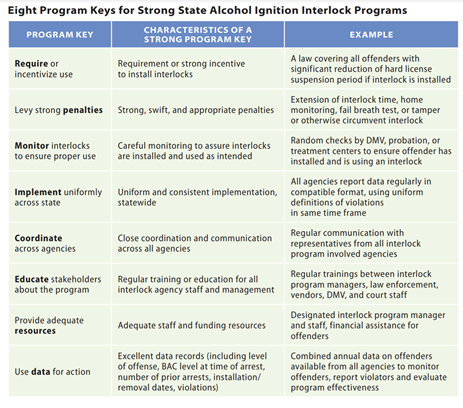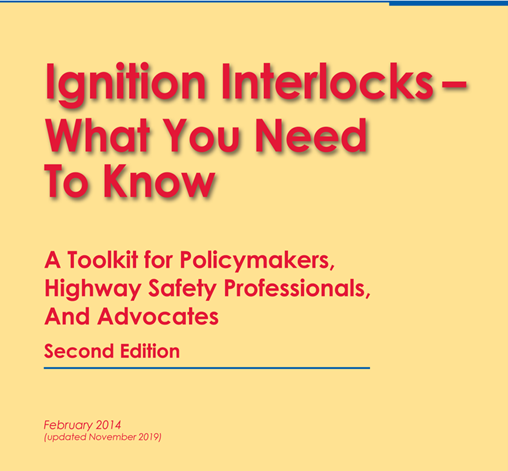Supplemental strategies:
Car Hardware Tracking Systems to Alter Physical Design
Linking to support and treatment programs
NHTSA Messaging to Provide Information
Ignition interlocks are devices installed on a vehicle that prevent a driver above a specified BAC level from turning the vehicle on. Interlocks are a flagship approach to preventing repeat offence of impaired driving. Successful programs couple clear information on the consequence of repeat DWI/DUI charges and support for individuals to treat and reduce problem drinking. Ignition interlocks are usually strongly incentivized following a DWI/DUI conviction. For example, the following map shows states where the refusal to install an interlock leads to a suspension of the offender’s driver’s license. Please review links below for authoritative guides on program implementation and law enforcement policies.
Learn More!
- https://www.nhtsa.gov/sites/nhtsa.dot.gov/files/documents/ignitioninterlocks_811883_112619.pdf
- This NHTSA toolkit was recently revised (2019). It’s sizeable- 60 pages- with examples of interlocks specifications, curricula, state reports, and other examples from state-to-state.
- Increasing Alcohol Ignition Interlock Use Successful Practices for States, https://www.cdc.gov/motorvehiclesafety/pdf/impaired_driving/ignition-interlock_successful_practices_for_states-a.pdf
- Review laws in your state from the National Conference of State Legislators
- Review the evidence from the Community Preventive Services Task Force
Additional Guidelines and Best Practices for Ignition Interlocks
Model Guideline for State Ignition Interlock Programs
National Highway Traffic Safety Administration (NHTSA)
Key Features for Ignition Interlock Programs
National Highway Traffic Safety Administration (NHTSA)
Case Study and Evaluations of Interlock Programs
Ignition Interlock: An Investigation into Rural Arizona Judges’ Perceptions
National Highway Traffic Safety Administration (NHTSA)
Case Studies of Ignition Interlocks Programs
National Highway Traffic Safety Administration (NHTSA)
Evaluation of the New Mexico Ignition Interlock Program
National Highway Traffic Safety Administration (NHTSA)
Traffic Injury Research Foundation publications on Ignition Interlock
Alcohol Interlock Curriculum for Practitioners
Traffic Injury Research Foundation (TIRF)
International Inventory of Ignition Interlock Programs
Traffic Injury Research Foundation (TIRF)




